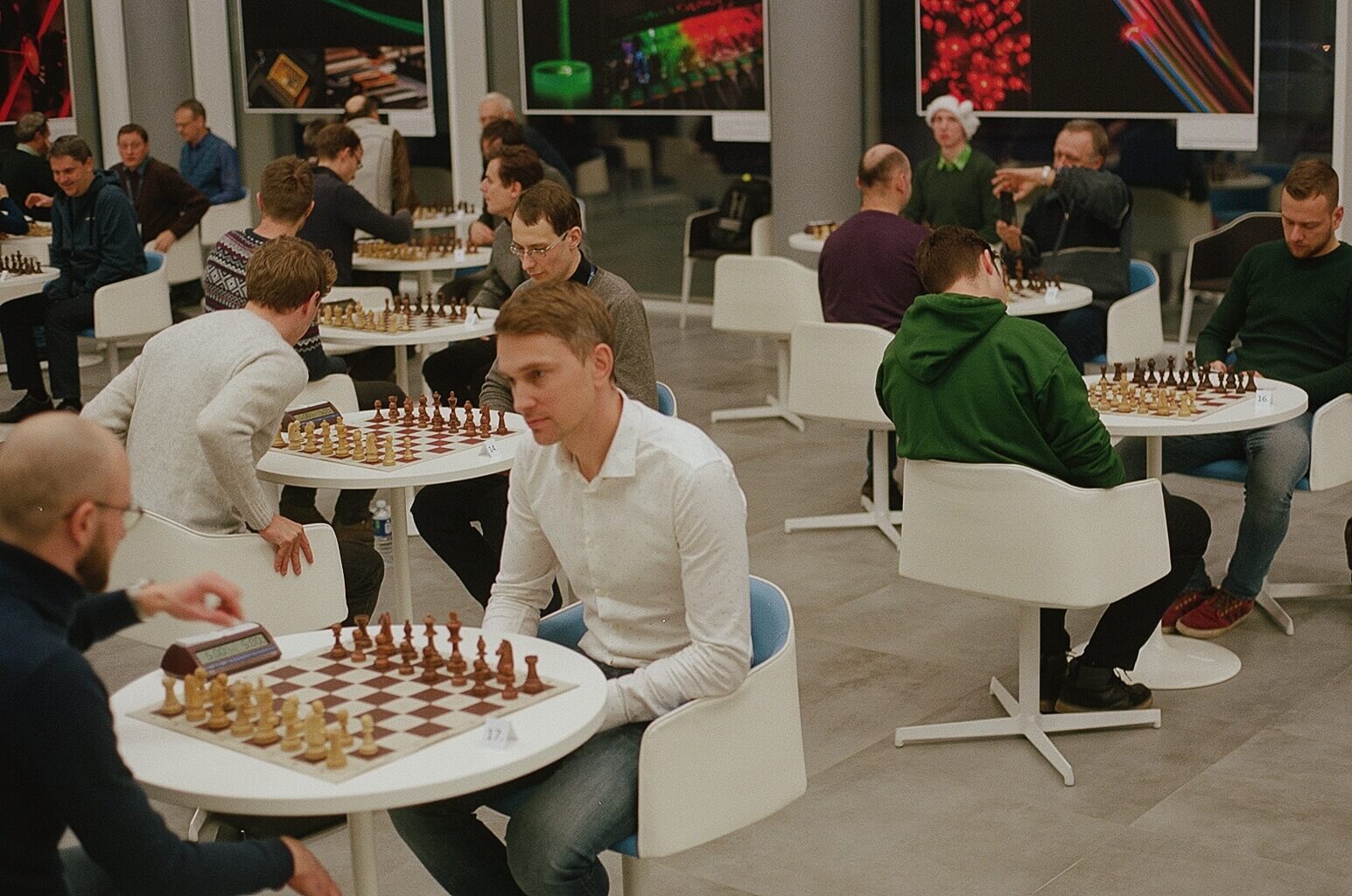5 Frames… Of Chess at Vilnius University’s FTMC on Kodak Portra 160 (35mm Format / EI 200 / Nikon F3 + Nikon Nikkor 50mm f/1.8 AI) – by Arutis
We are now encountering unpleasant and unpredictable days during the pandemic, and I recall what a different was the situation a year ago when nobody could even imagine that meetings and closer contacts would not be allowed very soon. It was in late December 2019, just before Christmas, when the first chess tournament of the Center for Physical Sciences and Technology (FTMC) was organized in the spacious entrance hall of the new building of our organization. I decided to take this opportunity for testing indoors my recently acquired camera Nikon F3 with the 50mm f/1.8 Nikkor lens.

The camera itself was purchased at the end of August the same year, and I had used it several times with black and white films to see how it worked for me as a beginner to Nikon analog cameras, as well as to find out if there were any serious drawbacks like light leaks, scratched film, issues with focusing, advancing film, light metering, etc. Well, I was quite satisfied with the performance of the camera despite evidence of it having had experienced hard use by someone in the past.
This being said, it should be mentioned that my personal experience with analog photography was at the amateur level for about 20 years and was broken around the year 2000 by the excitement of digital photography. My decisive return to analog photography happened in the spring of 2019 when I learned what a huge availability of film cameras existed allowing anyone to fill in any gaps in the field for photographs from the darkroom. You may trust me or not, but I had already collected about 40 “new” cameras including medium format ones by the time I caught the F3!





I selected Kodak Portra 160 for “the Hastings” tournament in Vilnius as another available colour film to test and compare with Kodak ColorPlus 200 or Fujicolor C200. The lighting conditions were sufficient to apply shutter speeds from 1/30 second to 1/60 second at f/1.8-2.8. It was also clear from the shutter sound that the camera sometimes went as low as 1/15 second. I shot two rolls during that tournament. They were developed using the C41 process and scanned at the local photo service lab. I like how soft and gentle the film renders colours and what a pleasure it is to work with the F3. Unfortunately, the second chess Christmas FTMC tournament could not be organized in 2020 due to the strong quarantine conditions. Here’s looking forward to 2021.
Thanks for reading and for looking at my photos.
~ Arutis
Submit your 5 Frames… today
Get your own 5 Frames featured by submitting your article using this form or by sending an email via the contact link at the top of the page.
Share your knowledge, story or project
The transfer of knowledge across the film photography community is the heart of EMULSIVE. You can add your support by contributing your thoughts, work, experiences and ideas to inspire the hundreds of thousands of people who read these pages each month. Check out the submission guide here.
If you like what you’re reading you can also help this passion project by heading over to the EMULSIVE Patreon page and contributing as little as a dollar a month. There’s also print and apparel over at Society 6, currently showcasing over two dozen t-shirt designs and over a dozen unique photographs available for purchase.








2 responses to “5 Frames… Of Chess at Vilnius University’s FTMC on Kodak Portra 160 (35mm Format / EI 200 / Nikon F3 + Nikon Nikkor 50mm f/1.8 AI)”
Do only men/boys and no women/girls play chess in Vilnius?
You have a great photo lab. Those colors are spot on!!!